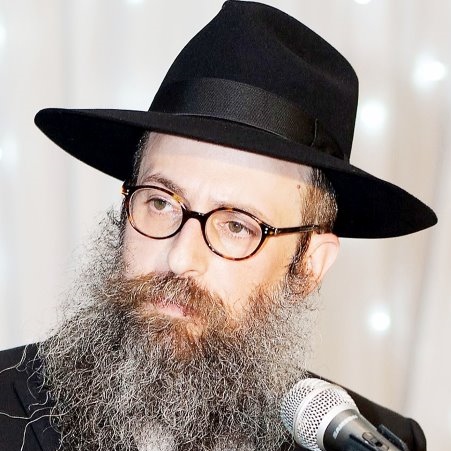Voices
Does Judaism allow for abortion?
The referendum in Ireland to legalise abortion requires reflection through the prism of Torah. The question itself is a very weighty and onerous one that cannot be decided by populist view and societal norms.

RABBI GIDON FOX
The notion that the average man in the street is possessed with the innate wisdom to determine weighty legal and societal matters would doubtless be countered by former Prime Minister David Cameron following the Brexit referendum.
Consequently, the idea of seeking populist approval and determination on a matter of life and death is certainly not the way the Torah would approach a matter of this gravitas.
No mother who has had the gift of a child in her womb, who has felt the movement and kicks of the life growing inside her, would question whether it is a living being. Thus, the question of abortion is indeed a question of life – or the opposite of life.
In order to better understand the Torah’s view, further context is necessary.
It is insightful to note that the original text of the Hippocratic Oath from around the third century declares, “I will neither give a deadly drug to anybody who asked for it, nor will I make a suggestion to this effect. Similarly I will not give to a woman an abortive remedy.” While Maimonides does not mention this in his physician’s prayer (perhaps because it is axiomatic) it is noteworthy that in the 20th century, this was removed from the oath.
Indeed, with the advent of the 21st century, medical practice in many countries includes precisely this, euthanasia. In the Netherlands, the first to legalise doctor-assisted dying, there has been a sharp uptake in both its use and abuse, with 6 091 people being euthanised in 2016 alone, an increase of 10% on 2015.
It is estimated that a further 1 400 may not even have been reported as euthanasia. There is said to be the intention to relax the grounds upon which euthanasia may be requested and provided.
Coupled with the latest referendum on abortion, one could be excused for believing that modern society has a greater or equal fixation with death than it has with life.
Judaism, on the other hand, has always been and will always be more fixated on life than on death. Indeed, the divine right of doctors to practice their profession is based on the Biblical phrase, verapo yerapo (doctors can heal). The doctor is given a singular right to provide healing and life, not the opposite.
In the Torah view, life is absolute, not relative. The Torah does not place greater import on one life over the other, regardless of talent or disability. All life is equal and on par with each other.
The value of life outweighs all else in the Torah, allowing, nay demanding, the abrogation of all laws in order to save a life (save for the three cardinal sins).
In sum, the Torah has always “worshipped” life, even as other civilisations deified death.
It is through this prism that the Torah’s laws of abortion must be viewed. Torah law allows the termination of a pregnancy in order to save the confirmed life of the mother.
It is our obsession with the value of life that places the life of the mother at the helm of this decision. It is therefore a life-affirming and life-saving question, not a life-taking question.
Consensus among Halachic authorities exists that where the mother’s very life is at risk from either the pregnancy or birth, an abortion is mandated. However, the more subtle definition of risk to the mother’s life presents divided opinions.
While some are of the opinion that only the risk of the mother’s death is grounds for termination, others believe that mental and emotional welfare may also play a factor. In this latter instance however, and indeed in general, no two cases are alike.
Each case needs to be evaluated on its own merit, taking into account the opinions of mental health professionals, understanding the history of the couple, and personal involvement with the family itself.
Thus, when deciding whether an abortion is permitted or not, it is Torah law, underpinned by a passion for life, that guides us through this difficult question.
Regrettably, the complexity of this extended question is beyond the scope of this article. A more robust understanding of the issues can be found at sefaria.org in the books titled Contemporary Halachic Problems. In all instances, however, a competent Halachic authority must be consulted when deciding such matters.
Disclaimer: The purpose of this article is not to be decisive and authoritative. It provides a cursory view of Torah’s view on this matter. As in many areas of Jewish law, Halacha is circumstantial, with each case being dealt with on its own merit or otherwise. No conclusions are thus to be derived from this article.
- Rabbi Gidon Fox is the Rabbi of the Pretoria Hebrew Congregation and Chairman of the SA Rabbinical Association.